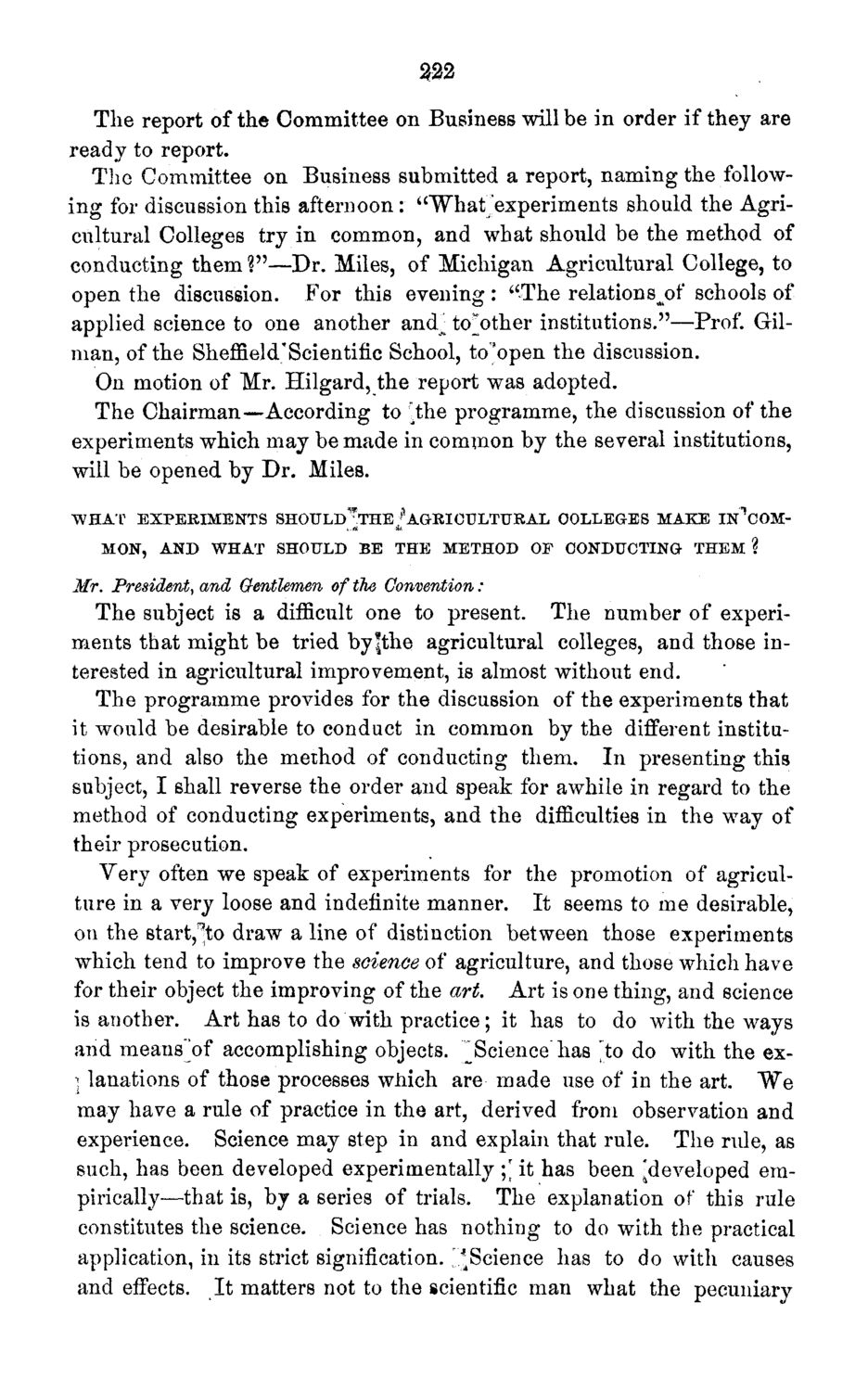| |
| |
Caption: Board of Trustees Minutes - 1871
This is a reduced-resolution page image for fast online browsing.

EXTRACTED TEXT FROM PAGE:
332 The report of the Committee on Business will be in order if they are ready to report. The Committee on Business submitted a report, naming the following for discussion this afternoon: "Whatexperiments should the Agricultural Colleges try in common, and what should be the method of conducting them ?"—Dr. Miles, of Michigan Agricultural College, to open the discussion. For this evening : "The relations^of schools of applied science to one another and^ to^other institutions."—Prof. Gilman, of the Sheffield'Scientific School, to'open the discussion. On motion of Mr. Hilgard, the report was adopted. The Chairman—According to ^the programme, the discussion of the experiments which may be made in common by the several institutions, will be opened by Dr. Miles. W H A T E X P E R I M E N T S S H O U L D % H E ^AGRICULTURAL COLLEGES MAKE INACOMMON, A N D WHAT SHOULD B E THE METHOD OF CONDUCTING THEM ? Mr. President, and Gentlemen of the Convention: The subject is a difficult one to present. The number of experiments that might be tried byfthe agricultural colleges, and those interested in agricultural improvement, is almost without end. The programme provides for the discussion of the experiments that it would be desirable to conduct in common by the different institutions, and also the method of conducting them. In presenting this subject, I 6hall reverse the order and speak for awhile in regard to the method of conducting experiments, and the difficulties in the way of their prosecution. Very often we speak of experiments for the promotion of agriculture in a very loose and indefinite manner. It seems to me desirable, on the start^to draw a line of distinction between those experiments which tend to improve the science of agriculture, and those which have for their object the improving of the art. Art is one thing, and science is another. Art has to do with practice; it has to do with the ways and meaus]of accomplishing objects. '^Science'has 'to do with the ex] lanations of those processes which are made use of in the art. We may have a rule of practice in the art, derived from observation and experience. Science may step in and explain that rule. The rule, as such, has been developed experimentally ;| it has been 'developed empirically—that is, by a series of trials. The explanation of this rule constitutes the science. Science has nothing to do with the practical application, in its strict signification. ^Science has to do with causes and effects. It matters not to the scientific man what the pecuniary
| |